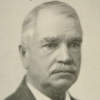Keep not ill men company, lest you increase the number.
George Herbert (1593-1633) Welsh priest, orator, poet.
Jacula Prudentum, or Outlandish Proverbs, Sentences, &c. (compiler), # 314 (1640 ed.)
(Source)
Quotations about:
vice
Note not all quotations have been tagged, so Search may find additional quotes on this topic.
Some have learnt many Tricks of sly Evasion,
Instead of Truth they use Equivocation,
And eke it out with mental Reservation,
Which to good Men is an Abomination.Benjamin Franklin (1706-1790) American statesman, scientist, philosopher, aphorist
Poor Richard (1736 ed.)
(Source)
Few vices are more certain to prevent you from having lots of friends than possessing too many virtues.
[Il y a peu de vices qui empêchent un homme d’avoir beaucoup d’amis, autant que peuvent le faire de trop grandes qualités.]Nicolas Chamfort (1741-1794) French writer, epigrammist (b. Nicolas-Sébastien Roch)
Products of Perfected Civilization [Produits de la Civilisation Perfectionée], Part 1 “Maxims and Thoughts [Maximes et Pensées],” ch. 2, ¶ 110 (1795) [tr. Parmée (2003), ¶ 90]
(Source)
(Source (French)). Alternate translations:
There are few vices that prevent a man from having many friends so much as his too high qualities prevent him.
[tr. Hutchinson (1902), "The Cynic's Breviary"]
There are few vices as likely to diminish the number of a man's friends, as can an excessive possession of fine qualities.
[tr. Mathers (1926), ¶ 90]
There are few vices that will so readily prevent a man from having many friends as will the possession of inordinate talents or virtues.
[tr. Merwin (1969)]
Few vices can prevent a man from having as many friends as too great of qualities can.
[tr. Siniscalchi (1994), ¶ 110]
The demand for certainty is one which is natural to man, but is nevertheless an intellectual vice.
Bertrand Russell (1872-1970) English mathematician and philosopher
“Philosophy for Laymen,” Universities Quarterly (1946-11)
(Source)
Reprinted in Unpopular Essays, ch. 2 (1951).
My days of love are over; me no more
The charms of maid, wife, and still less of widow,
Can make the fool of which they made before, —
In short, I must not lead the life I did do;
The credulous hope of mutual minds is o’er,
The copious use of claret is forbid too,
So for a good old-gentlemanly vice,
I think I must take up with avarice.
To discern faults, though they be in fashion: Though Vice be clothed in cloth of gold, yet a good man will still know it. It is to no purpose for it to be apparelled in gold, it can never so well disguise it self but that it will be perceived to be of iron. It would cloak it self with the nobility of its Adherents, but it is never stript of its baseness, nor the misery of its slavery.
[Conocer los defectos, por más autorizados que estén. No desconozca la entereza el vicio, aunque se revista de brocado; corónase tal vez de oro, pero no por eso puede disimular el yerro. No pierde la esclavitud de su vileza aunque se desmienta con la nobleza del sujeto.]
Baltasar Gracián y Morales (1601-1658) Spanish Jesuit priest, writer, philosopher
The Art of Worldly Wisdom [Oráculo Manual y Arte de Prudencia], § 186 (1647) [Flesher ed. (1685)]
(Source)
(Source (Spanish)). Alternate translations:
Recognise Faults, however high placed. Integrity cannot mistake vice even when clothed in brocade or perchance crowned with gold, but will not be able to hide its character for all that. Slavery does not lose its vileness, however it vaunt the nobility of its lord and master.
[tr. Jacobs (1892)]
Know what is evil, however much worshiped it may be. Let the man of intelligence not fail to recognize it, even if clothed in brocade, or crowned with gold, because it cannot thereby hide its bane, -- slavery does not lose its infamy, however noble the master.
[tr. Fischer (1937)]
Know when something is a defect, even if it looks like the opposite. Honesty should be able to recognize vice even when it dresses in brocade. Sometimes it wears a crown of gold, but even then it cannot hide its iron. Slavery is just as vile when disguised by high position.
[tr. Maurer (1992)]
When all sinnes grow old, coveteousnesse is young.
George Herbert (1593-1633) Welsh priest, orator, poet.
Jacula Prudentum, or Outlandish Proverbs, Sentences, &c. (compiler), # 18 (1640 ed.)
(Source)
Our virtues are usually only vices in disguise.
[Nos vertus ne sont le plus souvent que des vices déguisés]
François VI, duc de La Rochefoucauld (1613-1680) French epigrammatist, memoirist, noble
Réflexions ou sentences et maximes morales [Reflections; or Sentences and Moral Maxims], Epigraph (1675 ed.) [tr. Tancock (1959)]
(Source)
Added as an epigraph to the entire work in the 4th (1675) edition. A common theme in La Rochefoucauld's work, and variations of this maxim (and related thoughts) had been in the preceding editions and even this and later (see also ¶442).
(Source (French)). Alternate translations:
Our Vertues are oftentimes in Reality no better than Vices disguised.
[tr. Stanhope (1694)]
Our virtues are most frequently but vices disguised.
[tr. Bund/Friswell (1871)]
Our virtues are mostly but vices in disguise.
[tr. FitzGibbon (1957)]
Our virtues, most often, are only vices disguised.
[tr. Whichello (2016)]
And what is shameful if those who do it don’t think it so?
[τί δ’ αἰσχρὸν ἢν μὴ τοῖσι χρωμένοις δοκῇ]
Euripides (485?-406? BC) Greek tragic dramatist
Æolus [Αἴολος], frag. 19 (TGF) [tr. Aleator (2012)]
(Source)
This bit of moral relativism (likely coming from Macareus, the son of Aeolus, who committed incest with his sister, Canace) continues to provoke commentary, thus varied translations. Aristophanes includes a reference to this line in his The Frogs.
Nauck frag. 19, Barnes frag. 5, Musgrave frag. 1. (Source (Greek)). Alternate translations:
But what is base, if it appear not base
To those who practice what their soul approves?
[tr. Wodhull (1809)]
What is shameful, if it does not seem to be so to those who do it?
[Source]
What's wrong if they who do it think not so?
[Source (1902)]
Why shameful, if it does not seem so to those who practice it?
[Source (2018)]
EDGAR: The gods are just, and of our pleasant vices
Make instruments to plague us.William Shakespeare (1564-1616) English dramatist and poet
King Lear, Act 5, sc. 3, l. 204ff (5.3.204-205) (1606)
(Source)
Vices are more frequently habits than they are passions.
[Les vices sont plus souvent des habitudes que des passions.]
Nicolas Chamfort (1741-1794) French writer, epigrammist (b. Nicolas-Sébastien Roch)
Unanthologized Aphorism, ¶ 21
(Source)
(Source (French)).
Apothegm # 43 used by Mirabeau in his 1785 letters (Mirabeau's Letters During His Residence in England, Vol. 2 (1832)), but taken originally from Chamfort, as found in the third Appendix of the Claude Arnaud's biography Chamfort (1988).
AGE, n. That period of life in which we compound for the vices that we still cherish by reviling those that we have no longer the enterprise to commit.
Ambrose Bierce (1842-1914?) American writer and journalist
“Age,” The Cynic’s Word Book (1906)
(Source)
Included in The Devil's Dictionary (1911).
Originally published in the "Devil's Dictionary" column in the San Francisco Wasp (1881-02-12).
Men will readily enough avow cruelty, passion, even avarice, but never cowardice, because such an admission would bring them, among savages and even in civilized society, into mortal danger.
[Les hommes avouent volontiers la cruauté, la colère, l’avarice même, mais jamais la lâcheté, parce que cet aveu les mettrait, chez les sauvages et même dans une société polie, en un danger mortel.]
Anatole France (1844-1924) French poet, journalist, novelist, Nobel Laureate [pseud. of Jaques-Anatole-François Thibault]
The Gods Will Have Blood [Les Dieux Ont Soif], ch. 19 [Brotteaux] (1912) [tr. Allinson (1913), The Gods Are Athirst]
(Source)
(Source (French)). Alternate translation:
Men willingly post of their cruelty, their anger, their greed even, but never of their cowardice, because to admit such a thing would put them, whether in a primitive or a civilized society, in mortal peril.
[tr. Davies (1979)]
This life of ours — if a life so full of such great ills can properly be called a life — bears witness to the fact that, from its very start, the race of mortal men has been a race condemned. Think, first, of that dreadful abyss of ignorance from which all error flows and so engulfs the sons of Adam in a darksome pool that no one can escape without the toll of toils and tears and fears. Then, take our very love for all those things that prove so vain and poisonous and breed so many heartaches, troubles, griefs, and fears; such insane joys in discord, strife, and war; such wrath and plots of enemies, deceivers, sycophants; such fraud and theft and robbery; such perfidy and pride, envy and ambition, homicide and murder, cruelty and savagery, lawlessness and lust; all the shameless passions of the impure — fornication and adultery, incest and unnatural sins, rape and countless other uncleannesses too nasty to be mentioned; the sins against religion — sacrilege and heresy, blasphemy and perjury; the iniquities against our neighbors — calumnies and cheating, lies and false witness, violence to persons and property; the injustices of the courts and the innumerable other miseries and maladies that fill the world, yet escape attention.
It is true that it is wicked men who do such things, but the source of all such sins is that radical canker in the mind and will that is innate in every son of Adam. For, our infancy proves with what ignorance of the truth man enters upon life, and adolescence makes clear to all the world how full we are of folly and concupiscence. In fact, if anyone were left to live as he pleased and to do what he desired, he would go through practically the whole gamut of lawlessnesses and lust — those which I have just listed and, perhaps, others that I refrained from mentioning.[Nam quod ad primam originem pertinet, omnem mortalium progeniem fuisse damnatam, haec ipsa uita, si uita dicenda est, tot et tantis malis plena testatur. Quid enim aliud indicat horrenda quaedam profunditas ignorantiae, ex qua omnis error existit, qui omnes filios Adam tenebroso quodam sinu suscepit, ut homo ab illo liberari sine labore dolore timore non possit? Quid amor ipse tot rerum uanarum atque noxiarum et ex hoc mordaces curae, perturbationes, maerores, formidines, insana gaudia, discordiae, lites, bella, insidiae, iracundiae, inimicitiae, fallacia, adulatio, fraus, furtum, rapina, perfidia, superbia, ambitio, inuidentia, homicidia, parricidia, crudelitas, saeuitia, nequitia, luxuria, petulantia, inpudentia, inpudicitia, fornicationes, adulteria, incesta et contra naturam utriusque sexus tot stupra atque inmunditiae, quas turpe est etiam dicere, sacrilegia, haereses, blasphemiae, periuria, oppressiones innocentium, calumniae, circumuentiones, praeuaricationes, falsa testimonia, iniqua iudicia, uiolentiae, latrocinia et quidquid talium malorum in mentem non uenit et tamen de uita ista hominum non recedit? Verum haec hominum sunt malorum, ab illa tamen erroris et peruersi amoris radice uenientia, cum qua omnis filius Adam nascitur. Nam quis ignorat cum quanta ignorantia ueritatis, quae iam in infantibus manifesta est, et cum quanta abundantia uanae cupiditatis, quae in pueris incipit apparere, homo ueniat in hanc uitam, ita ut, si dimittatur uiuere ut uelit et facere quidquid uelit, in haec facinora et flagitia, quae commemoraui et quae commemorare non potui, uel cuncta uel multa perueniat?]
Augustine of Hippo (354-430) Christian church father, philosopher, saint [b. Aurelius Augustinus]
City of God [De Civitate Dei], Book 22, ch. 22 (22.22) (AD 412-416) [tr. Walsh/Honan (1954)]
(Source)
(Source (Latin)). Alternate translations:
Concerning man’s first origin, our present life (if such a miserable estate can be called a life) does sufficiently prove that all his children were condemned in him. What else does that horrid gulf of ignorance confirm, whence all error has birth, and wherein all the sons of Adam are so deeply drenched, that none can be freed without toil, fear, and sorrow? What else does our love of vanities affirm, whence there arises such a tempest of cares, sorrows, repinings, fears, mad exultations, discords, altercations, wars, treasons, furies, hates, deceits, flatteries, thefts, rapines, perjuries, pride, ambition, envy, murder, parricide, cruelty, villainy, luxury, impudence, unchastity, fornications, adulteries, incests, several sorts of sins against nature (filthy even to be named), sacrilege, heresy, blasphemy, oppression, calumnies, circumventions, deceits, false witnesses, false judgments, violence, robberies, and suchlike out of my remembrance to reckon, but not excluded from the life of man? All these evils are belonging to man, and arise out of the root of that error and perverse affection which every son of Adam brings into the world with him. For who does not know in what a mist of ignorance (as we see in infants) and with what a crew of vain desires (as we see in boys) all mankind enters this world, so that if man were left unto his own election, he would fall into most of the aforesaid mischiefs?
[tr. Healey (1610)]
That the whole human race has been condemned in its first origin, this life itself, if life it is to be called, bears witness by the host of cruel ills with which it is filled. Is not this proved by the profound and dreadful ignorance which produces all the errors that enfold the children of Adam, and from which no man can be delivered without toil, pain, and fear? Is it not proved by his love of so many vain and hurtful things, which produces gnawing cares, disquiet, griefs, fears, wild joys, quarrels, lawsuits, wars, treasons, angers, hatreds, deceit, flattery, fraud, theft, robbery, perfidy, pride, ambition, envy, murders, parricides, cruelty, ferocity, wickedness, luxury, insolence, impudence, shamelessness, fornications, adulteries, incests, and the numberless uncleannesses and unnatural acts of both sexes, which it is shameful so much as to mention; sacrileges, heresies, blasphemies, perjuries, oppression of the innocent, calumnies, plots, falsehoods, false witnessings, unrighteous judgments, violent deeds, plunderings, and whatever similar wickedness has found its way into the lives of men, though it cannot find its way into the conception of pure minds? These are indeed the crimes of wicked men, yet they spring from that root of error and misplaced love which is born with every son of Adam. For who is there that has not observed with what profound ignorance, manifesting itself even in infancy, and with what superfluity of foolish desires, beginning to appear in boyhood, man comes into this life, so that, were he left to live as he pleased, and to do whatever he pleased, he would plunge into all, or certainly into many of those crimes and iniquities which I mentioned, and could not mention?
[tr. Dods (1871)]
This very life, if life it can be called, pregnant with so many dire evils, bears witness that from its very beginning all the progeny of mankind was damned. For what else is the meaning of the dreadful depth of ignorance, from which all error arises, which has taken to its bosom, so to speak, all the sons of Adam in its dark embrace, so that man cannot be freed from that embrace without toil, pain and fear? What is the meaning of the love of so many vain and harmful things, from which come gnawing cares, passions, griefs, fears, mad joys, discords, strifes, wars, plots, wraths, enmities, deceits, flattery, fraud, theft, robbery, perfidy, pride, ambition, envy, murder, parricide, cruelty, ferocity, vileness, riotous living, disorderly conduct, impudence, shamelessness, fornication, adultery, incest and so many outrageous and foul forms of unnatural vice in each sex which it is indecent even to mention, sacrilege, heresies, blasphemies, perjuries, oppressions of the innocent, calumnies, deceptions, duplicities, false witness, unjust verdicts, violence, brigandage and all the other evils which come not to mind, but still do not pass from this life of men? Yes, these are misdeeds of bad men, for they spring from that root of error and perverse love with which every son of Adam is born. Indeed, who does not know with what ignorance of truth, manifest already in infancy, and with what excess of vain desire, which begins to appear in childhood, man comes into this life, so that if he is allowed to live and do as he likes, he falls into all, or many, of these misdeeds and crimes which I have rehearsed, and others which I was unable to rehearse?
[tr. Green (Loeb) (1972)]
As for that first origin of mankind, this present life of ours (if a state full of so much grievous misery can be called a life) is evidence that all the mortal descendants of the first man came under condemnation. Such is the clear evidence of that terrifying abyss of ignorance, as it may be called, which is the source of all error, in whose gloomy depths all the sons of Adam are engulfed, so that man cannot be rescued from it without toil, sorrow and fear. What else is the message of all the evils of humanity? The love of futile and harmful satisfactions, with its results: carking anxieties, agitations of mind, disappointments, fears, frenzied joys, quarrels, disputes, wars, treacheries, hatreds, enmities, deceits, flattery, fraud, theft, rapine, perfidy, pride, ambition, envy, murder, parricide, cruelty, savagery, villainy, lust, promiscuity, indecency, unchastity, fornication, adultery, incest, unnatural vice in men and women (disgusting acts too filthy to be named), sacrilege, collusion, false witness, unjust judgement, violence, robbery, and all other such evils which do not immediately come to mind, although they never cease to beset this life of man -- all these evils belong to man in his wickedness, and they all spring from that root of error and perverted affection which every son of Adam brings with him at his birth. For who is not aware of the vast ignorance of the truth (which is abundantly seen in infancy) and the wealth of futile desires (which begins to be obvious in boyhood) which accompanies a man on his entrance into this world, so that if man were left to live as he chose and act as he pleased he would fall into all, or most, of those crimes and sins which I have mentioned -- and others which I was not able to mention.
[tr. Bettenson (1972)]
This life itself, if it is to be called a life, attests, by the many great evils with which it is filled, that the whole mortal progeny of the first man stands condemned. What could show this more clearly than that dreadful and profound ignorance from which springs all the error which imprisons the sons of Adam in a dark place from which no man can be delivered without toil, pain and fear? Is this not proved by his love of so many vain and harmful things, from which come gnawing cares, disturbances, griefs, fears, insane joys, discords, litigation, wars, treasons, angers, hatreds, falsehood, flattery, fraud, theft, rapine, perfidy, pride, ambition, envy, homicides, parricides, cruelty, ferocity, wickedness, luxury, insolence, immodesty, unchastity, fornications, adulteries, incests, and so many other impure and unnatural acts of both sexes of which it is shameful even to speak; sacrileges, heresies, blasphemies, perjuries, oppression of the innocent, slanders, plots, prevarications, false witness, unrighteous judgments, acts of violence, robberies, and other such evils which do not immediately come to mind, but which are never far away from men in this life? Truly, these are the crimes of wicked men; yet they come forth from that root of error and perverse love which is born with every son of Adam. For who does not know how great is our ignorance of the truth, manifesting itself even in infancy? Who does not know with what an abundance of vain desires, beginning to appear in boyhood, a man comes into this life? So true is this that, if a man were left to live as he wished and do whatever he liked, he would fall into all, or certainly into many, of those crimes and iniquities which I mentioned and could not mention.
[tr. Dyson (1998)]
Whilst that for which all virtue now is sold,
And almost every vice, almighty gold ….Ben Jonson (1572-1637) English playwright and poet
“Epistle to Elizabeth, Countess of Rutland” (1599)
(Source)
Reprinted in The Forest, Poem 12.
Everything beautiful and noble is the result of reason and calculation. Crime, of which the human animal has learned the taste in his mother’s womb, is natural by origin. Virtue, on the other hand, is artificial, supernatural, since at all times and in all places gods and prophets have been needed to teach it to animalized humanity, man being powerless to discover it by himself. Evil happens without effort, naturally, fatally; Good is always the product of some art.
[Tout ce qui est beau et noble est le résultat de la raison et du calcul. Le crime, dont l’animal humain a puisé le goût dans le ventre de sa mère, est originellement naturel. La vertu, au contraire, est artificielle, surnaturelle, puisqu’il a fallu, dans tous les temps et chez toutes les nations, des dieux et des prophètes pour l’enseigner à l’humanité animalisée, et que l’homme, seul, eût été impuissant à la découvrir. Le mal se fait sans effort, naturellement, par fatalité ; le bien est toujours le produit d’un art.]
Charles Baudelaire (1821-1867) French poet, essayist, art critic
“Le Peintre de la Vie Moderne [The Painter of Modern Life],” sec. 11 (1863) [tr. Mayne (1964)]
(Source)
(Source (French)). Alternate translation:
Everything beautiful and noble is the result of reason and calculation. Crime, for which the human creature has acquired a taste in its mother’s womb, is natural in origin. Virtue, on the contrary, is artificial, unnatural since, at all times and among all nations, gods and prophets were necessary to teach virtue to animalistic humanity, which humanity alone was unable to discover. Evil occurs without effort, naturally, through fatality; good is always the product of artifice.
[tr. Kline (2020)]
“Let your conscience be your guide” is a silly thing to say to a good man, or a bad one.
Mignon McLaughlin (1913-1983) American journalist and author
The Second Neurotic’s Notebook, ch. 5 (1966)
(Source)
Imaginary evil is romantic and varied; real evil is gloomy, monotonous, barren, boring. Imaginary good is boring; real good is always new, marvelous, intoxicating.
Simone Weil (1909-1943) French philosopher
Gravity and Grace [La Pesanteur et la Grâce], “Evil” (1947) [ed. Thibon] [tr. Crawford/von der Ruhr (1952)]
(Source)
Speaking of the portrayal of good and evil in literature.
For what is there more hideous than avarice, more brutal than lust, more contemptible than cowardice, more base than stupidity and folly? Well, then, are we to call those persons unhappy, who are conspicuous for one or more of these, on account of some injuries, or disgraces, or sufferings to which they are exposed, or on account of the moral baseness of their sins?
[Quid enim foedius auaritia, quid immanius libidine, quid contemptius timiditate, quid abiectius tarditate et stultitia dici potest? Quid ergo? Eos qui singulis uitiis excellunt aut etiam pluribus, propter damna aut detrimenta aut cruciatus aliquos miseros esse dicimus, an propter uim turpitudinemque uitiorum?]
Marcus Tullius Cicero (106-43 BC) Roman orator, statesman, philosopher
De Legibus [On the Laws], Book 1, ch. 19 / sec. 51 (1.19/1.51) [Marcus] (c. 51 BC) [tr. Barham/Yonge (1878)]
(Source)
(Source (Latin)). Alternate translations:
For what is there more hideous than avarice, more ferocious than lust, more contemptible than cowardice, more base than stupidity and folly? Well, therefore, may we style unhappy, those persons in whom any one of these vices is conspicuous, not on account of the disgraces or losses to which they are exposed, but on account of the moral baseness of their sins.
[tr. Barham (1842)]
For what can be thought of that is more loathsome than greed, what more inhuman than lust, what more contemptible than cowardice, what more degraded than stupidity and folly? Well, then, shall we say that those who are sunk deepest in a single vice, or in several, are wretched on account of any penalties or losses or tortures which they incur, or on account of the base nature of the vices themselves?
[tr. Keyes (1928)]
What can be called more revolting than greed, more bestial than lust, more despicable than cowardice, more abject than dullness and stupidity? What then? Take those people who are conspicuous for one (or more than one) vice. Do we call them wretched because of the losses or damages or pain they suffer, or because of the power and ugliness of their vices?
[tr. Rudd (1998)]
What is uglier than greed, what is more horrible than lust, what is more contemptible than cowardice, what is lower than sloth and stupidity? What then? People who are remarkable for single vices or even for several -- do we call them wretched because of material losses or torture, or because of the great dishonor from the vices themselves?
[tr. Zetzel (1999)]
What could be called fouler than avarice, what more monstrous than lust, what more scorned than cowardice, what more despicable than dullness and foolishness? What then? Do we say about those who are conspicuous for their individual vices, or even many vices, that they are wretched because of losses or damages or tortures, or because of the significance and the disgrace of their vices?
[tr. Fott (2013)]
Slavery is not good in itself: it is neither useful to the master nor to the slave, because the slave can do nothing from virtuous motives; nor to the master, because he contracts amongst his slaves all sorts of bad habits — he becomes haughty, passionate, obdurate, vindictive, voluptuous, and cruel.
[Il n’est pas bon par sa nature; il n’est utile ni au maître ni à l’esclave: à celui-ci, parce qu’il ne peut rien faire par vertu; à celui-là, parce qu’il contracte avec ses esclaves toutes sortes de mauvaises habitudes, qu’il s’accoutume insensiblement à manquer à toutes les vertus morales, qu’il devient fier, prompt, dur, colère, voluptueux, cruel.]
Charles-Lewis de Secondat, Baron de Montesquieu (1689-1755) French political philosopher
The Spirit of Laws [De l’esprit des lois], Vol. 1, Book 15, ch. 1 (1748)
(Source (French)).
Common translation used by English and American abolitionists (e.g., 1812). Alternate translations:
The state of slavery is in its own nature bad. It is neither useful to the master nor to the slave; not to the slave, because he can do nothing through a motive of virtue; not to the master, because by having an unlimited authority over his slaves, he insensibly accustoms himself to the want of all moral virtues, and from thence grows fierce, hasty, severe, choleric, voluptuous, and cruel.
[tr. Nugent (1758 ed.)]
It is not good by its nature; it is useful neither to the master nor to the slave: not to the slave, because he can do nothing from virtue; not to the master, because he contracts all sorts of bad habits from his slaves, because he imperceptibly grows accustomed to failing in all the moral virtues, because he grows proud, curt, harsh, angry, voluptuous, and cruel.
[tr. Cohler/Miller/Stone (1989)]
But although tact is a virtue, it is very closely allied to certain vices; the line between tact and hypocrisy is a very narrow one. I think the distinction comes in the motive: when it is kindliness that makes us wish to please, our tact is the right sort; when it is fear of offending, or desire to obtain some advantage by flattery, our tact is apt to be of a less amiable kind.
Bertrand Russell (1872-1970) English mathematician and philosopher
“On Tact,” New York American (1933-02-01)
(Source)
No vice exists which does not pretend to be more or less like some virtue, and which does not take advantage of this assumed resemblance.
[Il n’y a point de vice qui n’ait une fausse ressemblance avec quelque vertu, et qui ne s’en aide.]
Jean de La Bruyère (1645-1696) French essayist, moralist
The Characters [Les Caractères], ch. 4 “Of the Heart [Du Coeur],” § 72 (4.72) (1688) [tr. Van Laun (1885)]
(Source)
See Erasmus.
(Source (French)). Alternate translations:
There is no Vice which has not some resemblance of some Virtue, or other, and which does not make its advantage of it.
[Bullord ed. (1696)]
There is no Vice which has not the false resemblance of some Virtue, or other, and which does not make its advantage of it.
[Curll ed. (1713)]
There is no vice which does not bear a misleading likeness to some virtue, and takes advantage of this.
[tr. Stewart (1970)]
Hypocrisy is the tribute that vice pays to virtue.
[L’hypocrisie est un hommage que le vice rend à la vertu.]
François VI, duc de La Rochefoucauld (1613-1680) French epigrammatist, memoirist, noble
Réflexions ou sentences et maximes morales [Maxims], ¶ 218 (1665-1678) [tr. FitzGibbon (1957)]
(Source)
(Source (French)). Alternate translations:
Hypocrisie is a Sort of Homage which Vice pays to Vertue.
[tr. Stanhope (1694), ¶ 219]
Hypocrisy is the homage that vice pays to virtue.
[pub. Donaldson (1783), ¶ 231; ed. Lepoittevin-Lacroix (1797), ¶ 209; ed. Carville (1835), ¶ 449; tr. Bund/Friswell (1871), ¶ 218]
Hypocrisy is the homage that vice renders to virtue.
[ed. Gowens (1851), ¶ 227]
Hypocrisy is a tribute vice pays to virtue.
[tr. Heard (1917), ¶ 223; tr Tancock (1959), ¶ 218]
Hypocrisy is a sort of homage which vice pays to virtue.
[tr. Stevens (1939), ¶ 218]
Hypocrisy is the homage vice offers to virtue.
[tr. Kronenberger (1959), ¶ 218]
Hypocrisy is a form of homage that vice pays to virtue.
[tr. Whichello (2016), ¶ 218]
There are no vices more dangerous than those which simulate virtue.
Desiderius Erasmus (1465-1536) Dutch humanist philosopher and scholar
The Handbook of the Christian Soldier [Enchiridion Militis Christiani], sec. 32b (1501) [tr. Fantazzi (1989)]
(Source)
Alternate translation:
No sins are more dangerous than those which have the appearance of virtue.
[tr. Himelick (1963), ch. 14]
The vices of which we are full we carefully hide from others, and we flatter ourselves with the notion that they are small and trivial; we sometimes even embrace them as virtues.
John Calvin (1509-1564) French theologian and reformer
The Institutes of Christian Religion [Institutio Christianae Religionis], Book 3, ch. 7, sec. 4 (1541) [tr. Van Andel (1952)]
(Source)
Also reprinted in an extract as The Christian Life [De Vita Hominis Christiani], or, in the case of the Van Andel translation, Golden Booklet of the True Christian Life, ch. 2, sec. 4, subsec. 2.
The vices in which we abound, we sedulously conceal from others, and flatter ourselves with the pretence that they are diminutive and trivial, and even sometimes embrace them as virtues.
[Source (1813)]
The very vices that infest us we take pains to hide from others, while we flatter ourselves with the pretense that they are slight and insignificant, and even sometimes embrace them as virtues.
[Source (1984)]
The vices with which we abound we both carefully conceal from others, and flatteringly represent to ourselves as minute and trivial, no, sometimes hug them as virtues.
[tr. Beveridge (2008)]
The cardinal method with faults is to overgrow them and choke them out with virtues.
At court, far from regarding ambition as a sin, people regard it as a virtue, or if it passes for a vice, then it is regarded as the vice of great souls, and the vices of great souls are preferred to the virtues of the simple and the small.
[A la cour, bien loin de faire un crime de l’ambition, on s’en fait une vertue; ou si elle y passe pour un vice, du reste on la regarde comme le vice des grandes âmes, et l’on aime mieux les vices des grandes âmes que les vertus des simples et des petits.]
Louis Bourdaloue (1632-1704) French Jesuit priest, preacher
Quoted in Bernart Gorethuysen, The Bourgeois: Catholicism vs. Capitalism in Eighteenth-Century France (1927) [tr. Ilford (1968)]
(Source)
I haven’t a particle of confidence in a man who has no redeeming petty vices whatsoever.
Mark Twain (1835-1910) American writer [pseud. of Samuel Clemens]
“Answers to Correspondents,” The Californian (17 Jun 1865)
(Source)
Reprinted in The Celebrated Jumping Frog of Calaveras County, and Other Sketches (1867).
In the throat
Of Hell, before the very vestibule
Of opening Orcus, sit Remorse and Grief,
And pale Disease, and sad Old Age, and Fear,
And Hunger that persuades to crime, and Want,
Forms terrible to see. Suffering and Death
Inhabit here, and Death’s own brother, Sleep;
And the mind’s evil Lusts, and deadly War
Lie at the threshold, and the iron beds
Of the Eumenides; and Discord wild,
Her viper-locks with bloody fillets bound.[Vestibulum ante ipsum, primisque in faucibus Orci
Luctus et ultrices posuere cubilia Curae;
pallentesque habitant Morbi, tristisque Senectus,
et Metus, et malesuada Fames, ac turpis Egestas,
terribiles visu formae: Letumque, Labosque;
tum consanguineus Leti Sopor, et mala mentis
Gaudia, mortiferumque adverso in limine Bellum,
ferreique Eumenidum thalami, et Discordia demens,
vipereum crinem vittis innexa cruentis.]Virgil (70-19 BC) Roman poet [b. Publius Vergilius Maro; also Vergil]
The Aeneid [Ænē̆is], Book 6, l. 274ff (6.274-282) (29-19 BC) [tr. Cranch (1872), l. 336ff]
(Source)
The gates of the Underworld, as Aeneas enters.
(Source (Latin)). Alternate translations:
Just at the door, before the gates of hell,
Sorrow repos'd, with her revenging Rage,
Pale sicknesses and discontented age,
Fear, with dire Famine, and base Povertie,
Labour and death, shapes terrible to see.
Then sleep allied to Death, and fond joys are
Plac'd on the other side, with deadly War,
On iron beds, Furies and Discord sit,
Their viperous hair with bloody fillets knit.
[tr. Ogilby (1649)]
Just in the gate and in the jaws of hell,
Revengeful Cares and sullen Sorrows dwell,
And pale Diseases, and repining Age,
Want, Fear, and Famine's unresisted rage;
Here Toils, and Death, and Death's half-brother, Sleep,
Forms terrible to view, their sentry keep;
With anxious Pleasures of a guilty mind,
Deep Frauds before, and open Force behind;
The Furies' iron beds; and Strife, that shakes
Her hissing tresses and unfolds her snakes.
[tr. Dryden (1697)]
Before the vestibule itself, and in the first jaws of hell, Grief and vengeful Cares have placed their couches, and pale Diseases dwell, and disconsolate Old Age, and Fear, and the evil counsellor Famine, and vile deformed Indigence, forms ghastly to the sight! and Death, and Toil; then Sleep, akin to Death, and criminal Joys of the mind; and in the opposite threshold murderous War, and the iron bed-chambers of the Furies, and frantic Discord, having her viperous locks bound with bloody fillets.
[tr. Davidson/Buckley (1854)]
At Orcus' portals hold their lair
Wild Sorrow and avenging Care;
And pale Diseases cluster there,
And pleasureless Decay,
Foul Penury, and Fears that kill,
And Hunger, counsellor of ill,
A ghastly presence they:
Suffering and Death the threshold keep,
And with them Death's blood-brother, Sleep:
Ill Joys with their seducing spells
And deadly War are at the door;
The Furies couch in iron cells,
And Discord maddens and rebels;
Her snake-locks hiss, her wreaths drip gore.
[tr. Conington (1866)]
Right in front of the doorway and in the entry of the jaws of hell Grief and avenging Cares have made their bed; there dwell wan Sicknesses and gloomy Eld, and Fear, and ill-counselling Hunger, and loathly Want, shapes terrible to see; and Death and Travail, and thereby Sleep, Death's kinsman, and the Soul's guilty Joys, and death-dealing War full in the gateway, and the Furies in their iron cells, and mad Discord with bloodstained fillets enwreathing her serpent locks.
[tr. Mackail (1885)]
Lo, in the first of Orcus' jaws, close to the doorway side,
The Sorrows and Avenging Griefs have set their beds to bide;
There the pale kin of Sickness dwells, and Eld, the woeful thing,
And Fear, and squalid-fashioned Lack, and witless Hungering,
Shapes terrible to see with eye; and Toil of Men, and Death,
And Sleep, Death's brother, and the Lust of Soul that sickeneth:
And War, the death-bearer, was set full in the threshold's way,
And those Well-willers' iron beds: there heartless Discord lay,
Whose viper-breeding hair about was bloody-filleted.
[tr. Morris (1900), l. 272ff]
Before the threshold, in the jaws of Hell,
Grief spreads her pillow, with remorseful Care.
There sad Old Age and pale Diseases dwell,
And misconceiving Famine, Want and Fear,
Terrific shapes, and Death and Toil appear.
Death's kinsman, Sleep, and Joys of sinful kind,
And deadly War crouch opposite, and here
The Furies' iron chamber, Discord blind
And Strife, her viperous locks with gory fillets twined.
[tr. Taylor (1907), st. 38, l. 334]
In the first courts and entrances of Hell
Sorrows and vengeful Cares on couches lie:
There sad Old Age abides, Diseases pale,
And Fear, and Hunger, temptress to all crime;
Want, base and vile, and, two dread shapes to see,
Bondage and Death : then Sleep, Death's next of kin;
And dreams of guilty joy. Death-dealing War
Is ever at the doors, and hard thereby
The Furies' beds of steel, where wild-eyed Strife
Her snaky hair with blood-stained fillet binds.
[tr. Williams (1910)]
Just before the entrance, even within the very jaws of Hell, Grief and avenging Cares have made their bed; there pale Diseases dwell, and sad Age, and Fear, and ill-counselling Famine, and loathly Want, shapes terrible to view; and Death and Distress; next, Death's own brother Sleep, and the soul's Guilty Joys, and, on the threshold opposite, the death-bearer War, and the Furies' iron cells, and savage Strife, her snaky locks entwined with bloody fillets.
[tr. Fairclough (1916)]
At the first threshold, on the jaws of Orcus,
Grief and avenging Cares have set their couches,
And pale Diseases dwell, and sad Old Age,
Fear, evil-counselling Hunger, wretched Need,
Forms terrible to see, and Death, and Toil,
And Death’s own brother, Sleep, and evil Joys,
Fantasies of the mind, and deadly War,
The Furies’ iron chambers, Discord, raving,
Her snaky hair entwined in bloody bands.
[tr. Humphries (1951)]
See! At the very porch and entrance way to Orcus
Grief and ever-haunting Anxiety make their bed:
Here dwell pallid Diseases, here morose Old Age,
With Fear, ill-prompting Hunger, and squalid Indigence,
Shapes horrible to look at, Death and Agony;
Sleep, too, which is the cousin of Death; and Guilty Joys,
And there, against the threshold, War, the bringer of Death:
Here are the iron cells of the Furies, and lunatic Strife
Whose viperine hair is caught up with a headband soaked in blood.
[tr. Day-Lewis (1952)]
Before the entrance, at the jaws of Orcus,
both Grief and goading Cares have set their couches;
there pale Diseases dwell, and sad Old Age,
and Fear and Hunger, that worst counselor,
and ugly Poverty -- shapes terrible
to see -- and Death and Trials; Death's brother, Sleep,
and all the evil Pleasures of the mind;
and War, whose fruits are death; and facing these,
the Furies' iron chambers; and mad Strife,
her serpent hair bound up with bloody garlands.
[tr. Mandelbaum (1971), l. 363ff]
Before the entrance, in the jaws of Orcus,
Grief and avenging Cares have made their beds,
And pale Diseases and sad Age are there,
And Dread, and Hunger that sways men to crime,
And sordid Want -- in shapes to affright the eyes --
And Death and Toil and Deaths;s own brother, Sleep,
And the mind's evil joys; on the door sill
Death-bringing War, and iron cubicles
Of the Eumenidës, and raving Discord,
Viperish hair bound up in gory bands.
[tr. Fitzgerald (1981)]
Before the entrance hall of Orcus, in the very throat of hell, Grief and Revenge have made their beds and Old age lives there in despair, with white faced Diseases and Fear and Hunger, corrupter of men, and squalid Poverty, things dreadful to look upon, and Death and Drudgery besides. Then there were Sleep, Death's sister, perverted Pleasures, murderous War astride the threshold, the iron chambers of the Furies and raving Discord with blood-soaked ribbons binding her viperous hair.
[tr. West (1990)]
Right before the entrance, in the very jaws of Orcus,
Grief and vengeful Care have made their beds,
and pallid Sickness lives there, and sad Old Age,
and Fear, and persuasive Hunger, and vile Need,
forms terrible to look on, and Death and Pain:
then Death’s brother Sleep, and Evil Pleasure of the mind,
and, on the threshold opposite, death-dealing War,
and the steel chambers of the Furies, and mad Discord,
her snaky hair entwined with blood-wet ribbons.
[tr. Kline (2002)]
Just before the entrance, in the very jaws
Of Orcus, Grief and avenging Cares
Have set their beds. Pale Diseases
Dwell there, sad Old Age, Fear, Hunger --
The tempter -- and foul Poverty,
All fearful shapes, and Death and Toil,
And Death's brother Sleep, Guilty Joys,
And on the threshold opposite, lethal War,
The Furies in iron cells, and mad Strife,
Her snaky hair entwined with bloody bands.
[tr. Lombardo (2005)]
There in the entryway, the gorge of hell itself,
Grief and the pangs of Conscience make their beds,
and fatal pale Disease lives there, and bleak Old Age,
Dread and Hunger, seductress to crime, and grinding Poverty,
all, terrible shapes to see -- and Death and deadly Struggle
and Sleep, twin brother of Death, and twisted, wicked Joys
and facing them at the threshold, War, rife with death,
and the Furies’ iron chambers, and mad, raging Strife
whose blood-stained headbands knot her snaky locks.
[tr. Fagles (2006), l. 312ff]
At the entrance, in Orcus' very jaws, Grief and vengeful Sorrow made their beds, and Pale Diseases, sad Old Age, and Fear and ill-advising Hunger and shameful Poverty, forms horrible to see, and Death and Suffering, then Death's brother Slumber, and the Joys of evil men. Facing them were murderous War and the Furies' iron chambers and mad Discord, her serpent hair bound up with bloody ribbons.
[tr. Bartsch (2021)]
Whoever, in a prosperous station plac’d,
Is slothful and regardless of his household,
Intent on nought except bewitching song,
Will by his family, his friends, his country,
Be held in no esteem: for the best gifts
Of nature ineffectual prove, when pleasure,
Degrading pleasure, occupies the soul.[ἁνὴρ γὰρ ὅστις εὖ βίον κεκτηµένος
τὰ µὲν κατ’ οἴκους ἀµελίᾳ παρεὶς ἐᾷ,
µολπαῖσι δ’ ἡσθεὶς τοῦτ’ ἀεὶ θηρεύεται,
ἀγρὸς µὲν οἴκοι κἂν πόλει γενήσεται,
φίλοισι δ’οὐδείς· ἡ φύσις γὰρ οἴχεται,
ὅταν γλυκείας ἡδονῆς ἥσσων τις ᾗ.]Euripides (485?-406? BC) Greek tragic dramatist
Antiope [Αντιοπη], frag. 187 (TGF, Kannicht) [Zethus/ΖΗΘΟΣ] (c. 410 BC) [tr. Wodhall (1809)]
(Source)
(Source (Greek)). Barnes frag. 16, Musgrave frag. 29. See also frag. 200. Alternate translation:
For any man who well acquires a livelihood
and permits its decline with his indifference,
and who delights himself with song and dance
and is always chasing it, will be idle at home and in the polis,
and a nobody for his friends; for a man’s nature is lost
when he is conquered by the sweetness of pleasure.
[tr. Will (2015)]
Know your major defect. Every talent is balanced by a fault, and if you give in to it, it will govern you like a tyrant.
[Conocer su defecto rey. Ninguno vive sin él, contrapeso de la prenda relevante; y si le favorece la inclinación, apodérase a lo tirano.]
Baltasar Gracián y Morales (1601-1658) Spanish Jesuit priest, writer, philosopher
The Art of Worldly Wisdom [Oráculo Manual y Arte de Prudencia], § 225 (1647) [tr. Maurer (1992)]
(Source)
(Source (Spanish)). Alternate translations:
To know ones prevailing fault. Every one hath one, that makes a counterpoise to his predominant perfection. And if it be backt by inclination, it rules like a Tyrant.
[Flesher ed. (1685)]
Know your chief fault. There lives none that has not in himself a counterbalance to his most conspicuous merit: if this be nourished by desire, it may grow to be a tyrant.
[tr. Jacobs (1892)]
Know your chief weakness. No one lives without some counterweight to even his greatest gift, which when petted, assumes tyranny.
[tr. Fischer (1937)]
Timely advis’d, the coming Evil shun:
Better not do the Deed, than weep it done.Matthew Prior (1664-1721) English poet and diplomat
“Henry and Emma,” l. 310ff [Henry] (1709)
(Source)
But they who only live to pamper up
Their flesh, when their possessions they have wasted,
Become bad citizens; for still unchang’d
Doth their voracious appetite remain.[καὶ µὴν ὅσοι µὲν σαρκὸς εἰς εὐεξίαν
ἀσκοῦσι βίοτον, ἢν σφαλῶσι χρηµάτων,
κακοὶ πολῖται· δεῖ γὰρ ἄνδρ᾽εἰθισµένον
ἀκόλαστον ἦθος γαστρὸς ἐν ταὐτῷ µένειν.]Euripides (485?-406? BC) Greek tragic dramatist
Antiope [Αντιοπη], frag. 201 (Kannicht) / 200 (TGF) (c. 410 BC) [tr. Wodhall (1809)]
(Source)
Barnes frag. 54, Musgrave frag. 7. (Source (Greek)). Alternate translation:
Indeed all who live life for big muscles, if their
wealth should fail, are bad citizens; for when a man becomes
accustomed to habits of gluttony, he remains in those habits.
[tr. Will (2015)]
Vices can be elevated, but are always base. Some people see a certain hero with a certain fault, but they don’t realize it wasn’t the fault that made him a hero. An example of people in high places is so persuasive that it makes people imitate even their ugliness. Adulation mimics even an ugly face, without realizing that what is hidden by greatness is abominated when greatness is lacking.
[Bien pueden estar los vicios realzados, pero no son realces. Ven algunos que aquel héroe tuvo aquel accidente, pero no ven que no fue héroe por aquello. Es tan retórico el ejemplo superior, que aun las fealdades persuade; hasta las del rostro afectó tal vez la lisonja, no advirtiendo que, si en la grandeza se disimulan, en la bajeza se abominan.]
Baltasar Gracián y Morales (1601-1658) Spanish Jesuit priest, writer, philosopher
The Art of Worldly Wisdom [Oráculo Manual y Arte de Prudencia], § 186 (1647) [tr. Maurer (1992)]
(Source)
(Source (Spanish)). Alternate translation:
Vices may very well be exalted, but not exalt. Some observe, that such a Heroe hath had such a Vice, but they consider not, that it was not that Vice which made him a Heroe. The example of great men is so good an Oratour, that it persuades one to infamous matters. Sometimes flattery hath affected even bodily defects, without observing, that though they be born with in great men, they are insupportable in the mean.
[Flesher ed. (1685)]
Vices may stand in high place, but are low for all that. Men can see that many a great man has great faults, yet they do not see that he is not great because of them. The example of the great is so specious that it even glosses over viciousness, till it may so affect those who flatter it that they do not notice that what they gloss over in the great they abominate in the lower classes.
[tr. Jacobs (1892)]
The vices may stand high, but they are not high: some see a great man afflicted with this vice or that; but they do not see, that is great not because of it but in spite of it. The portrait of the man high up is so convincing, that even his deformities persuade, wherefore flattery at times mimics them, not seeing, that if in the great such things are overlooked, in the small, they are looked down upon.
[tr. Fischer (1937)]
While then the worst man is he who displays vice both in his own affairs and in his dealings with his friends, the best man is not he who displays virtue in his own affairs merely, but he who displays virtue towards others; for this is the hard thing to do.
[κάκιστος μὲν οὖν ὁ καὶ πρὸς αὑτὸν καὶ πρὸς τοὺς φίλους χρώμενος τῇ μοχθηρίᾳ, ἄριστος δ᾽ οὐχ ὁ πρὸς αὑτὸν τῇ ἀρετῇ ἀλλὰ πρὸς ἕτερον: τοῦτο γὰρ ἔργον χαλεπόν.]
Aristotle (384-322 BC) Greek philosopher
Nicomachean Ethics [Ἠθικὰ Νικομάχεια], Book 5, ch. 1 (5.1.18) / 1130a.5-8 (c. 325 BC) [tr. Peters (1893)]
(Source)
(Source (Greek)). Alternate translations:
Now he is the basest of men who practises vice not only in his own person, but towards his friends also; but he the best who practises virtue not merely in his own person but towards his neighbour, for this is a matter of some difficulty.
tr. Chase (1847), ch. 2]
Worst of men is he whose wickedness affects not himself alone but his fellow with him; best of men is he whose virtue affects not himself alone but his fellow with him; for such a one has in all sooth a hard task.
[tr. Williams (1869)]
As then the worst of men is he who exhibits his depravity both in his own life and in relation to his friends, the best of men is he who exhibits his virtue not in his own life only but in relation to others; for this is a difficult task.
[tr. Welldon (1892)]
Now the worst man is he who exercises his wickedness both towards himself and towards his friends, and the best man is not he who exercises his virtue towards himself but he who exercises it towards another; for this is a difficult task.
[tr. Ross (1908)]
As then the worst man is he who practises vice towards his friends as well as in regard to himself, so the best is not he who practises virtue in regard to himself but he who practises it towards others; for that is a difficult task.
[tr. Rackham (1934)]
The worst sort of person, then, is the one who uses his depravity both in relation to himself and in relation to his friends, whereas the best sort is not the one who uses his virtue in relationship to himself but the one who uses it in relation to another person, since that is difficult work.
[tr. Reeve (1948)]
The worst man, then, is the one whose evil habit affects both himself and his friends, while the best man is one whose virtue is directed not to himself, but to others, for this is a difficult task.
[tr. Apostle (1975)]
So the worst person is the one who exercises his wickedness towards both himself and his friends, and the best is not the one who exercises his virtue towards himself but the one who exercises it towards another; because this is a difficult task.
[tr. Thomson/Tredennick (1976)]
So the worst person is the one who exercises wickedness in relation to himself and in relation to his friends, and the best is not he who exercises his virtue in relation to himself but the one who exercises it in relation to others, since this is a difficult thing to do.
[tr. Crisp (2000)]
Worst, then, is he who treats both himself and his friends in a corrupt way, but best is he who makes use of virtue not in relation to himself but in relation to another. For this is a difficult task.
[tr. Bartlett/Collins (2011)]
It is necessary to distinguish between the virtue and the vice of obedience.
Lemuel K. Washburn (1846-1927) American freethinker, writer
Is the Bible Worth Reading and Other Essays, Epigram (1911)
(Source)
Informer, libel-monger, cut-throat, knave,
Pander, to every loathsome vice a slave,
Vacerra, it is marvellous that you
With these resources are a pauper, too.[Et delator es et calumniator,
Et fraudator es et negotiator,
Et fellator es et lanista. Miror
Quare non habeas, Vacerra, nummos.]Martial (AD c.39-c.103) Spanish Roman poet, satirist, epigrammatist [Marcus Valerius Martialis]
Epigrams [Epigrammata], Book 11, epigram 66 (11.66) (AD 96) [tr. Pott & Wright (1921)]
(Source)
"To Vacerra." (Source (Latin)). Alternate translations:
Thou art a slanderer and delator,
False dealer, pimp, and fornicator:
Where such rare parts and trades are found,
I wonder much, thy purse does not abound.
[tr. Killigrew (1695)]
You an informer are; and a back-biter:
A common sharper; and a hackney writer:
A whore-master; and master of defence:
Jack of all trades; strange! that you want the pence!
[tr. Hay (1755), ep. 67]
Vile informer, slander's child!
Dealer, who hast still beguil'd!
Shield of war, and soul of arms,
How hast thou no golden charms?
[tr. Elphinston (1782), 6.1.39]
You are an informer, a calumniator, a forger, a secret agent, a slave to the unclean, and a trainer of gladiators. I wonder, Vacerra, why you have no money.
[tr. Bohn's Classical (1859)]
You're a blackmailer, bruiser and liar,
A usurer, pimp and a cheat:
With methods so sound
I'm surprised that you've found
Gaining wealth an impossible feat.
[tr. Nixon (1911)]
You are an informer and a backbiter, and you are a cheat and a pimp, and you are a foul rascal and a master of gladiators. I wonder why you are not rich, Vacerra.
[tr. Ker (1919)]
You're an informer and tool of slander
And a notorious swindler and a pander
And a cock-sucker and a gangster and a ...
I can't make out, Vacerra, why you're poor.
[tr. Michie (1972)]
You're an informer and a slanderer, a swindler and a dealer, a sucker and a trainer. I wonder why you don't have any money, Vacerra.
[tr. Shackleton Bailey (1993)]
X is a sneak
and a liar,
And a fraud,
and a pimp,
And an arselicker who coaches others, and....
...I really can't work out why he isn't a Director yet.
[tr. Ynys-Mon (2015), "The Corporate Conundrum"]
How can the slippery son of a bitch,
With all his vices, not be rich?
[tr. Wills (2007)]
You're an informer, slanderer, cocksucker, swindler, panderer, and fight instructor. It seems funny, Vacerra, that you have no money.
[tr. McLean (2014)]
You're an informer and a lying witness,
a defrauder and a middleman,
a cocksucker and a provocateur.
Vacerra, I can't understand why you're not rich.
[tr. Nisbet (2015)]
Discourtesy is not one specific vice of the soul but the result of several vices: foolish vanity, ignorance of one’s duties, laziness, stupidity, thoughtlessness, contempt for others, and jealousy.
[L’incivilité n’est pas un vice de l’âme, elle est l’effet de plusieurs vices: de la sotte vanité, de l’ignorance de ses devoirs, de la paresse, de la stupidité, de la distraction, du mépris des autres, de la jalousie.]
Jean de La Bruyère (1645-1696) French essayist, moralist
The Characters [Les Caractères], ch. 11 “Of Mankind [De l’Homme],” § 8 (11.8) (1688) [tr. Stewart (1970)]
(Source)
(Source (French)). Alternate translations:
Incivility is not a Vice of the Soul, but the effect of several Vices; of Vanity, Ignorance of Duty, Laziness, Stupidity, Distraction, Contempt of others and Jealousie.
[Bullord ed. (1696); Curll ed. (1713); Browne ed. (1752)]
Impoliteness is not a vice of the mind, but the consequence of several vices; of foolish vanity, of ignorance of one’s duties, of idleness, of stupidity, of absence of mind, of contempt for others, and of jealousy.
[tr. Van Laun (1885)]
Even in their appeal to “custom” they accomplish nothing. To constrain us to yield to custom would be to treat us most unjustly. Indeed, if men’s judgments were right, custom should have been sought of good men. But it often happens far otherwise: what is seen being done by the many soon obtains the force of custom; while the affairs of men have scarcely ever been so well regulated that the better things pleased the majority. Therefore, the private vices of the many have often caused public error, or rather a general agreement on vices, which these good men now want to make law.
John Calvin (1509-1564) French theologian and reformer
The Institutes of the Christian Religion [Christianae Religionis Institutio], Preface, sec. 5 (1536) [tr. Battles (1960]
(Source)
Alternate translation:
Then, again, it is to no purpose they call us to the bar of custom. To make every thing yield to custom would be to do the greatest injustice. Were the judgments of mankind correct, custom would be regulated by the good. But it is often far otherwise in point of fact; for, whatever the many are seen to do, forthwith obtains the force of custom. But human affairs have scarcely ever been so happily constituted as that the better course pleased the greater number. Hence the private vices of the multitude have generally resulted in public error, or rawther that common consent in vice which these worthy men would have to be law.
[tr. Beveridge (1845)]
Vile deeds are vile, no matter whether we know or do not know what, after death, will be the fate of the doer. We know, at least, what his fate is now, namely to be wedded to the vileness.
Felix Adler (1851-1933) German-American educator
Life and Destiny, Lecture 9 “Ethical Outlook” (1903)
(Source)
“And sin, young man, is when you treat people like things. Including yourself. That’s what sin is.”
“It’s a lot more complicated than that –”
“No. It ain’t. When people say things are a lot more complicated than that, they means they’re getting worried that they won’t like the truth. People as things, that’s where it starts.”
“Oh, I’m sure there are worse crimes –”
“But they starts with thinking about people as things …”Terry Pratchett (1948-2015) English author
Carpe Jugulum [Granny Weatherwax, Rev. Mightily Oats] (1998)
(Source)
There are two kinds of injustice — the one, on the part of those who inflict wrong, the other on the part of those who, when they can, do not shield from wrong those upon whom it is being inflicted. For he who, under the influence of anger or some other passion, wrongfully assaults another seems, as it were, to be laying violent hands upon a comrade; but he who does not prevent or oppose wrong, if he can, is just as guilty of wrong as if he deserted his parents or his friends or his country.
[Sed iniustitiae genera duo sunt, unum eorum, qui inferunt, alterum eorum, qui ab iis, quibus infertur, si possunt, non propulsant iniuriam. Nam qui iniuste impetum in quempiam facit aut ira aut aliqua perturbatione incitatus, is quasi manus afferre videtur socio; qui autem non defendit nec obsistit, si potest, iniuriae, tam est in vitio, quam si parentes aut amicos aut patriam deserat.]
Marcus Tullius Cicero (106-43 BC) Roman orator, statesman, philosopher
De Officiis [On Duties; On Moral Duty; The Offices], Book 1, ch. 7 (1.7) / sec. 23 (44 BC) [tr. Miller (1913)]
(Source)
Original Latin. Alternate translations:
The vice that is opposite to justice is injustice, of which there are two sorts: the first consists in the actual doing an injury to another; the second, in tamely looking on while he is injured, and not helping and defending him though we are able: for he that injuriously falls on another, whether prompted by rage or other violent passion, does as it were leap at the throat of his companion; and he that refuses to help him when injured, and to ward off the wrong if it lies in his power, is as plainly guilty of baseness and and injustice as though he had deserted his father, his friends, or his native country.
[tr. Cockman (1699)]
There are two kinds of injustice: Of the one, they are guilty who do an injury; of the other, they who, if they are able, do not defend those from injury to whom it is offered. For he who urged on by anger, or some violent passion, attempts to injure any man, lifts his hand against his brother' and he who interferes not to resist or repel the attempt, is as guilty as if he had deserted his parents, his friends, or his country.
[tr. McCartney (1798)]
But there are two kinds of injustice; the first of those who offer an injury, the second of those who have in their power to avert an injury from those to whom it is offered, and yet do it not. For if a man, prompted either by anger or any sudden perturbation, unjustly assaults another man, such a one seems as it were to lay violent hands on one's ally; and the man who does not repel or withstand the injury, if he can, is as much to blame as if he deserted the cause of his parents, his friends, or his country.
[tr. Edmonds (1865)]
Of injustice there are two kinds, -- one, that of those who inflict injury; the other, that of those who do not, if they can, repel injury from those on whom it is inflicted. Moreover, he who, moved by anger or by some disturbance of mind, makes an unjust assault on any person, is as one who lays violent hands on a casual companion; while he who does not, if he can, ward off or resist the injury offered to another, is as much in fault as if he were to desert his parents, or his friends, or his country.
[tr. Peabody (1883)]
There are two kinds of injustice: the positive injustice of the aggressor, and the negative injustice of neglecting to defend those who are wronged. To attack a man unjustly under the influence of anger or some other passion is to lay hands upon a comrade; not to defend the oppressed and shield them from injustice, is as great a crime as to desert our parents, friends, or country.
[tr. Gardiner (1899)]
There are two classifications of injustice. One part includes those who act unjustly. The other part includes men who, even if they have the power to do so, fail to protect from abuse those people against whom other men commit violence. The man who unjustly does harm to someone else, either in anger or because some other passion arounds him, acts as if he were striking a companion. But the man who does not avert an act of violence, or offer resistance if he has the power, is just as much at fault as if he betrayed his parents, or friends, or his fatherland.
[tr. Edinger (1974)]
A real man of fashion and pleasures observes decency: at least, neither borrows nor affects vices; and, if he unfortunately has any, he gratifies them with choice, delicacy, and secrecy.
Lord Chesterfield (1694-1773) English statesman, wit [Philip Dormer Stanhope]
Letter to his son, #119 (27 Mar 1747)
(Source)
As soon as riches came to be held in honour, when glory, dominion, and power followed in their train, virtue began to lose its lustre, poverty to be considered a disgrace, blamelessness to be termed malevolence. Therefore as the result of riches, luxury and greed, united with insolence, took possession of our young manhood. They pillaged, squandered; set little value on their own, coveted the goods of others; they disregarded modesty, chastity, everything human and divine; in short, they were utterly thoughtless and reckless.
[Postquam divitiae honori esse coepere et eas gloria, imperium, potentia sequebatur, hebescere virtus, paupertas probro haberi, innocentia pro malivolentia duci coepit. Igitur ex divitiis iuventutem luxuria atque avaritia cum superbia invasere; rapere, consumere, sua parvi pendere, aliena cupere, pudorem, pudicitiam, divina atque humana promiscua, nihil pensi neque moderati habere.]
Sallust (c. 86-35 BC) Roman historian and politician [Gaius Sallustius Crispus]
Bellum Catilinae [The War of Cateline; The Conspiracy of Catiline], ch. 12, sent. 1-2 [tr. Rolfe (1931)]
(Source)
Original Latin. Alt. trans.:
- "Riches became the epidemic passion; and where honours, imperial sway, and power, followed in their train, virtue lost her influence, poverty was deemed the meanest disgrace, and innocence was thought to be no better than a mark for malignity of heart. In this manner riches engendered luxury, avarice, and pride; and by those vices the Roman youth were enslaved. Rapacity and profusion went on increasing; regardless of their own property, and eager to seize that of their neighbours, all rushed forward without shame or remorse, confounding every thing sacred and profane, and scorning the restraint of moderation and justice." [tr. Murphy (1807)]
- "When riches began to be held in high esteem, and attended with glory, honour, and power, virtue languished, poverty was deemed a reproach, and innocence passed for ill-nature. And thus luxury, avarice, and pride, all springing from riches, enslaved the Roman youth; they wantoned in rapine and prodigality; undervalued their own, and coveted what belonged to others; trampled on modesty, friendship, and continence; confounded things divine and human; and threw off all manner of consideration and restraint." [tr. Rose (1831)]
- "After that riches began to be an honour and glory, and command and power followed them, virtue began to languish, poverty to be accounted matter of reproach, and innocence to be considered as malignity. Therefore from riches, luxury and avarice with pride came in upon our youth. They ravaged and wasted every thing, their own property they valued at a trifle, that of other persons they coveted, and had not the least care for, or moderation in, shame, modesty, sacred or profane things, which were all the same to them." [Source (1841)]
- "When wealth was once considered an honor, and glory, authority, and power attended on it, virtue lost her influence, poverty was thought a disgrace, and a life of innocence was regarded as a life of ill-nature. From the influence of riches, accordingly, luxury, avarice, and pride prevailed among the youth; they grew at once rapacious and prodigal; they undervalued what was their own, and coveted what was another’s; they set at naught modesty and continence; they lost all distinction between sacred and profane, and threw off all consideration and self-restraint." [tr. Watson (1867)]
- "Riches became a means of distinction and glory, power and influence followed their possession. As a result the edge of virtue was dulled, poverty was accounted a disgrace, and uprightness a kind of ill-nature. Riches made the youth prey to luxury, avarice, and pride: at once grasping and prodigal, they valued lightly their own property, while the coveted that of others; all modesty and purity, alike things human and things divine, everything, in short, was despised and disregarded." [tr. Pollard (1882)]
- "After riches began to be a source of honour and to be attended by glory, command and power, prowess began to dull, poverty to be considered a disgrace and blamelessness to be regarded as malice. In the wake of riches, therefore, young men were attacked by luxury and avarice along with haughtiness; they seized, they squandered; they placed little weight on their own property and desired that of others; they considered propriety and unchastity, divine and human matters, as indistinguishable, and nothing as worth weight or restraint." [tr. Woodman (2007)]
For herein may be seen noble chivalry, courtesy, humanity, friendliness, hardiness, love, friendship, cowardice, murder, hate, virtue, and sin. Do after the good and leave the evil, and it shall bring you to good fame and renown.
In this decline of all public virtue, ambition, and not avarice, was the passion that first possessed the minds of men; and this was natural. Ambition is a vice that borders on the confines of virtue; it implies a love of glory, of power, and pre-eminence; and these are objects that glitter alike in the eyes of the man of honour, and the most unprincipled: but the former pursues them by fair and honourable means, while the latter, who finds within himself no resources of talent, depends altogether upon intrigue and fallacy for his success.
[Sed primo magis ambitio quam avaritia animos hominum exercebat, quod tamen vitium propius virtutem erat. Nam gloriam, honorem, imperium bonus et ignavus aeque sibi exoptant; sed ille vera via nititur, huic quia bonae artes desunt, dolis atque fallaciis contendit.]
Sallust (c. 86-35 BC) Roman historian and politician [Gaius Sallustius Crispus]
Bellum Catilinae [The War of Cateline], ch. 11, sent. 1-2 [tr. Murphy (1807)]
(Source)
Also known as Catilinae Coniuratio [The Conspiracy of Cateline]. (Source (Latin)). Alternate translations:
At first, indeed, the minds of men were less influenced by avarice than ambition, a vice which has some affinity to virtue; for the desire of glory, power, and preferment is common to the worthy and the worthless; with this difference, that the one pursues them by direct means; the other, being void of merit, has recourse to fraud and subtlety.
[tr. Rose (1831)]
But at first ambition more than avarice influenced the minds of the Romans. Which vice however was the nearer to virtue. For glory, honour, command, the good and slothful equally wish for themselves. But the former strives by the right course; to the latter because good qualities are wanting, he works by tricks and deceits.
[Source (1841)]
At first, however, it was ambition, rather than avarice, that influenced the minds of men; a vice which approaches nearer to virtue than the other. For of glory, honor, and power, the worthy is as desirous as the worthless; but the one pursues them by just methods; the other, being destitute of honorable qualities, works with fraud and deceit.
[tr. Watson (1867)]
At first it was not so much avarice as ambition which spurred men's minds, a vice, indeed, but one akin to virtue. Glory, distinction, and power in the state are equally desired by good and bad, though the first strives to reach his goal by the path of honor, the second, in the lack of honest arts, uses the weapons of falsehood and deceit.
[tr. Pollard (1882)]
But at first men’s souls were actuated less by avarice than by ambitions -- a fault, it is true, but not so far removed from virtue; for the noble and the base alike long for glory, honour, and power, but the former mount by the true path, whereas the latter, being destitute of noble qualities, rely upon craft and deception.
[tr. Rolfe (1931)]
At first people's minds were taxed less by avarice than by ambition, which, though a fault, was nevertheless closer to prowess: for the good man and the base man have a similar personal craving for glory, honour, and command, but the former strives along the truth path, whereas the latter, because he lacks good qualities, presses forward by cunning and falsity.
[tr. Woodman (2007)]
What makes it so plausible to assume that hypocrisy is the vice of vices is that integrity can indeed exist under the cover of all other vices except this one. Only crime and the criminal, it is true, confront us with the perplexity of radical evil; but only the hypocrite is really rotten to the core.
Hannah Arendt (1906-1975) German-American philosopher, political theorist
On Revolution, ch. 2 (1963)
(Source)
So oft as I with state of present time
The image of the antique world compare,
Whereas man’s age was in his freshest prime,
And the first blossom of faire vertue bare,
Such oddes I find twixt those and these which arc,
As that, through long continuance of his course,
Me seemes the world is runne quite out of square
From the first point of his appointed source;
And being once amiss, grows daily worse and worse: […]For that which all men then did vertue call,
Is now cald vice; and that which vice was hight,
Is now hight vertue, and so us’d of all;
Right now is wrong, and wrong that was is right.Edmund Spenser (c. 1552-1599) English poet
The Faerie Queene, Book 5, Proem, st. 1, 4 (1589-96)
(Source)
An easygoing vice, I hold,
Is better than an angry virtue.[J’aime mieux un vice commode,
Qu’une fatigante vertu.]Molière (1622-1673) French playwright, actor [stage name for Jean-Baptiste Poquelin]
Amphitryon, Act 1, sc. 4, l. 681-2 [Mercury] (1666) [tr. Wilbur (2010)]
(Source)
Alt. trans.:
- "I prefer an accommodating vice / To an obstinate virtue."
- "I prefer a convenient vice, to a fatiguing virtune." [tr. Waller (1903)]
- Original French.
To expose vices to the ridicule of all the world is a severe blow to them. Reprehensions are easily suffered, but not so ridicule. People do not mind being wicked; but they object to being made ridiculous.
[C’est une grande atteinte aux vices que de les exposer à la risée de tout le monde. On souffre aisément des répréhensions, mais on ne souffre point la raillerie. On veut bien être méchant, mais on ne veut point être ridicule.]
Molière (1622-1673) French playwright, actor [stage name for Jean-Baptiste Poquelin]
Tartuffe, Preface (1664) [tr. Van Laun (1876)]
(Source)
Alt. trans.: "To expose vices to everyone’s laughter is to deal them a mighty blow. People easily endure reproofs, but they cannot at all endure being made fun of. People have no objection to being considered wicked, but they are not willing to be considered ridiculous." [tr. Kerr]
He said the wicked know that if the ill they do be of sufficient horror men will not speak against it. That men have just enough stomach for small evils and only these will they oppose.
Cormac McCarthy (1933-2023) American novelist, playwright, screenwriter
The Crossing (2010)
(Source)
Man is a reasoning animal. Therefore, man’s highest good is attained if he has fulfilled the good for which nature designed him at birth. And what is it which this reason demands of him? The easiest thing in the world — to live in accordance with his nature. But this has turned into a hard task by the general madness of mankind; we push one
another into vice.Seneca the Younger (c. 4 BC-AD 65) Roman statesman, philosopher, playwright [Lucius Annaeus Seneca]
Letters to Lucilius, Letter 41 (c. 65 AD)
(Source)
It is by means of my vices that I understand yours.
Ralph Waldo Emerson (1803-1882) American essayist, lecturer, poet
Journal (1844, Spring-Summer)
(Source)
He recorded this phrase multiple times, including in his lecture, "The Anglo-American" (7 Dec 1852), and Notebook S Salvage.
Ambition hath one heel nailed in hell, though she stretch her finger to touch the heavens.
John Lyly (c. 1553-1606) was an English writer [also Lilly or Lylie]
Midas: A Comedy, Act 2, sc. 1 [Sophronia] (1592)
(Source)
Sometimes misquoted as "nailed in well." Sometimes misattributed to Lao-tzu.












































